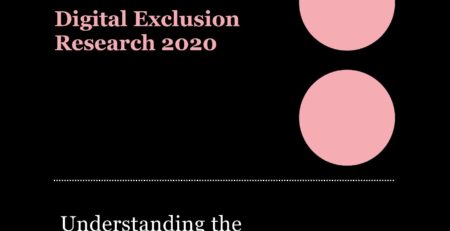New BSG report reveals SMEs are not capitalising on potential of broadband and technology
A new report published today by the Broadband Stakeholder Group (BSG) identifies that SMEs are not yet unlocking the commercial potential of online activity and new technologies.
The report entitled Capitalising on Connectivity: Realising the benefits of broadband for UK Small and Medium Sized Enterprises identifies that despite estimates that increasing the digital capabilities of the UK’s SMEs can unlock economic returns of £18.8 billion (ref 1) evidence tells us that SMEs are not capitalising as best they might on this lever for economic growth (ref 2).
This report considers current data on SME engagement with connectivity, policy initiatives to support SME use of broadband and technology, alongside new BSG research.
It makes five recommendations regarding how to better understand SME use of technology and incentivise further take-up and exploitation of connectivity:
1. Government should expand the evidence base on SME broadband use.
The BSG recommends it does this by adding more detailed questions about SME online activity to the Department for Business, Innovation and Skills’ biannual Small Business Survey.
2. Policy makers should have access to better information on how to persuade SMEs of the benefits of being active online.
The BSG recommends an online platform is established to highlight case studies of effective SME engagement. The BSG is looking to facilitate such a platform, working with organisations such as Go ON UK.
3. Industry and government need to better understand the requirements of SMEs for broadband in terms of bandwidth and other characteristics.
The BSG will be exploring this issue further as an input to the government’s Digital Communications Infrastructure Strategy.
4. The Department for Culture, Media and Sport should strengthen central resource within Broadband Delivery UK to assist local authorities with demand stimulation activity.
The BSG believes this will help unlock benefits from the £1.7bn public investment in broadband infrastructure.
5. Government should look to drive SME usage and uptake through its engagement with SMEs via government services and transactions.
Whether it be statutory obligations such as RTE Pay-As-You-Earn submissions through the HMRC portal, or incentivised transactions such as money off for submitting VAT returns online, the range of ways that SMEs interact with government can be thought of as having the potential to increase what they are doing online. The BSG urges government to give this further consideration.
Pamela Learmonth, CEO BSG said:
“Whilst tackling infrastructure issues is costly and time-consuming, understanding usage of infrastructure and communicating the benefits of doing more online is arguably even more challenging.
Given the high importance of capturing the economic benefits from both private and public investment in broadband, we hope this report is a useful input, building on existing initiatives to ensure the UK’s SMEs really do capitalise on the connectivity available to them.???
Read the press release in full
For press queries contact Sarah Whybrow, [email protected] or 07531 159155
Reference 1: The Case for Universal Digitisation, Booz & Co and Go ON UK, November 2012 http://www.go-on.co.uk/files/2113/5237/0908/The_Booz_Report_Nov2012.pdf
Reference 2: The Digital Imperative, Federation of Small Businesses and Intellect (now techUK), May 2013 http://www.fsb.org.uk/frontpage/assets/fsb-intellect-april13.pdf. Britain’s Digital Opportunity, Lloyds Banking Group, February 2013 http://businesshelp.lloydstsbbusiness.com/news/helping-your-business-click/.





